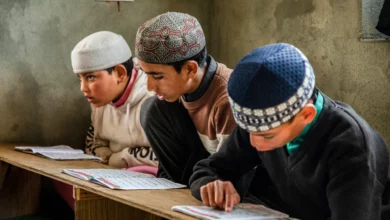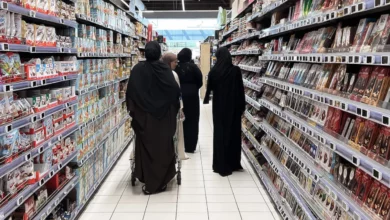In the wake of the Alexandria church bombing, many secular groups combating sectarianism have resurfaced. A consortium of such groups released a joint statement on Tuesday to condemn what they allege to be the Ministry of Interior's culpability in the attacks through negligence, and called on the government to repeal certain laws.
The statement, which included a call for an end to the government’s inclination “to turn a blind eye to many discriminatory practices against Egypt’s Christians,” is the first reaction from such groups following the deadly New Year's Eve attack.
Secular groups, such as Egyptians Against Religious Discrimination (MARED), have emerged over the past few years in response to mounting sectarian tension. They have also held many cultural events to promote their stated aim of “engaging in advocacy to uphold the values of freedom of thought and belief and to deepen the culture of citizenship rights.”
On 30 October, MARED organized a cultural event entitled “Egypt for all Egyptians,” which was cancelled by security forces. Along with other groups, MARED is deeply critical of government policies that it thinks are partly responsible for the charged sectarian environment in Egypt.
“These events serve to highlight the importance of acting quickly to change the discriminatory laws and policies we have in Egypt, as well as creating awareness about the topic in Egypt,” said group coordinator Mounir Megahed.
Despite the government’s campaign to promote national unity between Copts and Muslims, and its insistence that most sectarian incidents are individual acts, many of these groups share the skepticism of the Coptic community. “The problem isn’t just individuals–we found out that there’s a pervasive problem in Egyptian society regarding the outright rejection of sectarian policies,” Egyptian Initiative for Personal Rights (EIPR) Director Hossam Bahgat said.
The government needs to do three things, he said: prosecute all perpetrators of sectarian crimes, take preemptive measures to protect followers of different faiths, and take measures to change discriminatory policy.
EIPR is a research institute that has produced many well-received reports on local issues, such as sectarian violence, drug pricing, anti-human trafficking laws, and basic human rights Egypt.
Lately, it has been playing a more active, grassroots advocacy role. They have joined like-minded groups in issuing calls for unity after the bombing in an attempt to quell emotive bursts from either side, while reaffirming the need for government reform on the issue. According to Bahgat, they have also been playing a role in gauging the pulse of the Coptic community in Alexandria so as to get a sense of the effect the attack had on the public's psychology. With others they spearheaded the call for Muslims to attend Christmas mass with their Coptic compatriots on Thursday night.
While other politically liberal groups that are secular in nature–such as the 6 April movement and Mohamed ElBaradei’s National Association for Change–have been able to stir up the public, groups that focus more on the secularization of the country have been less successful.
“We did not invent these ideas. They are concepts applied in many countries around the world,” Megahed said.
It is perhaps this trait that has lead many to believe that secular groups suffer from a fundamental disconnection with Egyptian society.
“The problem with these groups is that people generally think their ideas are too foreign. Egyptians don’t understand the concept of total secularization, as it is more of a western concept,” said political analyst Ammar Ali Hassan.
Many Coptic observers also believe that the secularization of the issue comes at their expense more than others. “The concept of national unity always takes on a more secular shape for the Copts than it does for the Muslims, even though they’re both religious communities,” Menes Rizkallah, lawyer and coordinator of the Union of Liberal Youth, said.
Yousef Sidhom, editor-in-chief of Coptic weekly Watani, believes that there are many human rights issues that must be approached from a secular perspective, but this should not overshadow specific requests. “There are many things Muslims and Christians deserve," he said. "But as a religious community, Copts in Egypt have very specific demands that must be met.”
The coming weeks will see more activism from secularist groups, as they have been the most active following the sectarian circumstances. Addressing analysts' criticisms that a purely secular model for activism is incompatible with a religious society, Muslim or Christian, Bahgat said, “It isn't a zero-sum game–we advocate a secular system that does not interfere with the individual practice of religion. Countries like Malaysia have done it before.”
In coming weeks, MARED, EIPR and others will engage in several planned events to try to reverse the “growing tide” of tension.
“It could go either way,” Bahgat said. “We always have to try to work for the better.”




